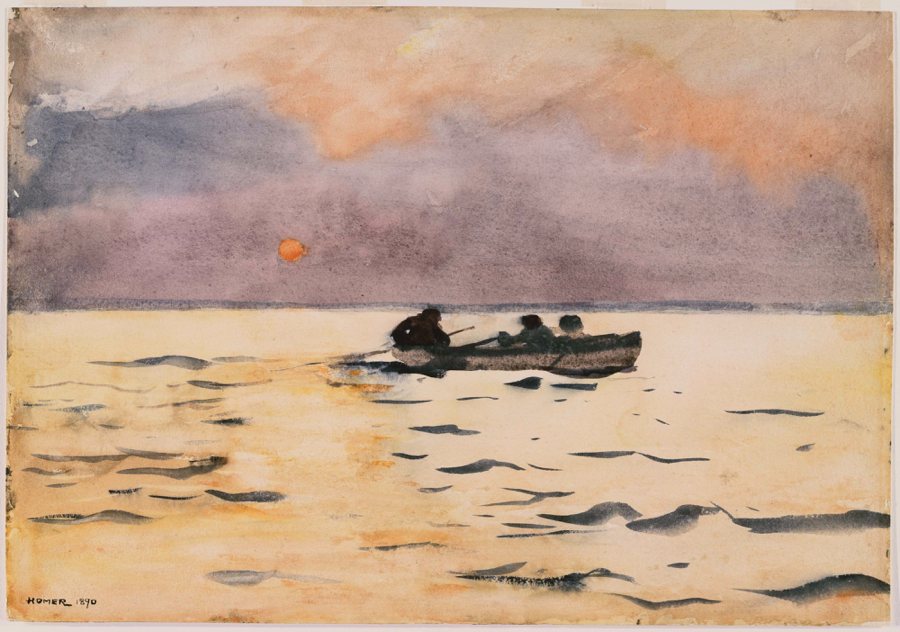Charles Tarlton
Rowing Home

Turning as with serious purpose
Before stupid winds.
– Stephen Crane |
I was wondering how cold the water was, how long, for example, I could survive in it. “Fifteen minutes at most,” Jack said, “this time of year.” We were sailing a dinghy out on the tide from the mouth of the Kennebec River into the Gulf of Maine. On a tack into an onshore wind, we were aiming to sail around Seguin Island. Jack had dreamed of doing this since he was a boy, he said, so here we were, two middle-aged professors in a twelve-foot wooden sailboat on the open sea. The passage out to the island was easy enough as we zigzagged our way through the easy swells. The island came up slowly, and we hardly talked. As we went behind Sequin, the sail went slack for a moment, but then Jack yelled out, “Coming about,” and shoved me to the other side of the boat. We shot forward running with the wind and as the island slipped behind us I looked expectantly toward shore. Then the wind just stopped, the boat eased to bobbing in the cold sea, and the sail went limp. The river’s current now seemed to be pushing us farther off shore. Jack reached under the seat and dragged out a small trolling outboard engine. He fastened it to the stern and it started after a few pulls. But, you could tell the whole thing was failure, it was all there on his face, the adventure spoiled in the laughing putt-putt-putt of the little engine.
the ocean was orange
silver, gray-orange like a skin
was on it, shiny
of molten metal or glass
but something that had been spilled
once the sun had come
up in reflections off the sea
and lit the bottoms
of the clouds, why the whole thing
became something like a church
everything’s so big
but the boat, the sky’s immense
the sea keeps secrets
in the boat they’re all alone
and so out of proportion
Note: Winslow Homer, Rowing Home, 1890, watercolor on paper, 13,75" x 19.88", The Phillips Collection.
|

